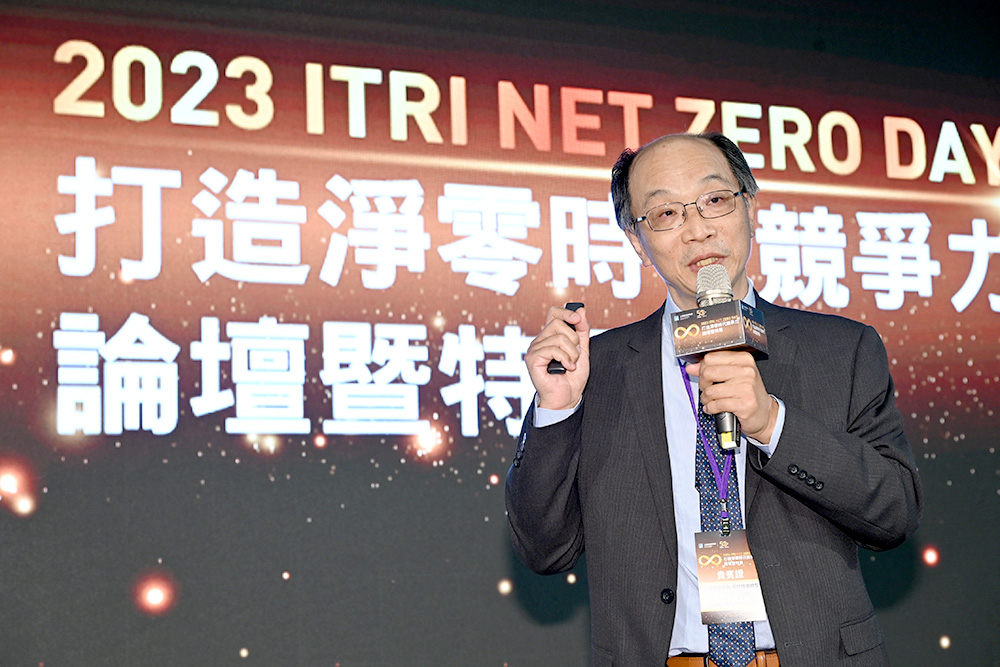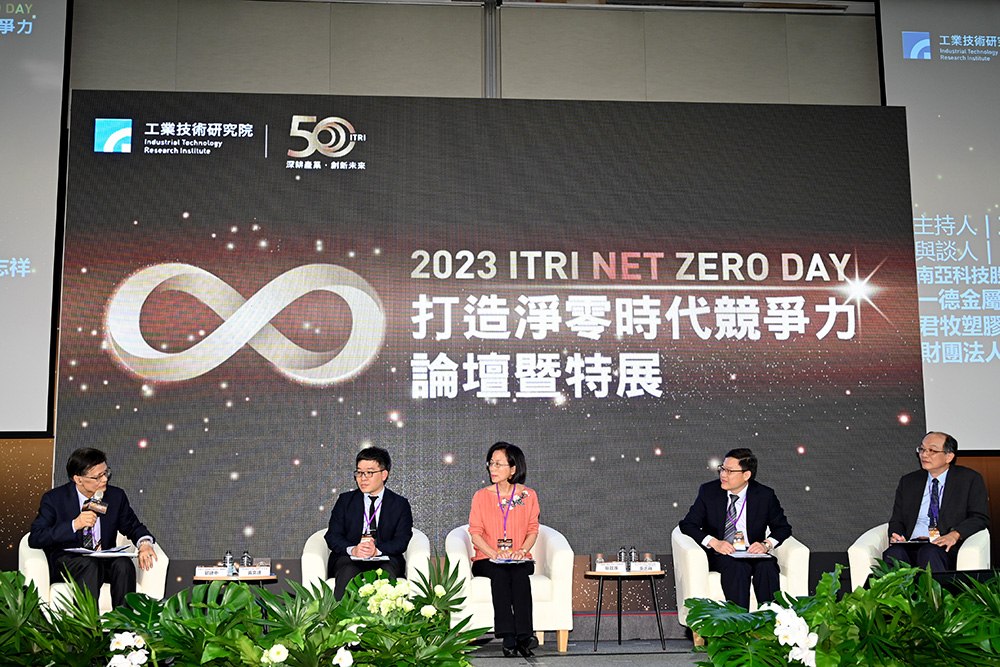Feature
Carbon Management: Building Sustainable Supply Chains
To help businesses calculate product carbon footprints, in 2022, ITRI set up a sustainable carbon management platform that holds over 12,000 local coefficient data. The platform has since attracted approximately 1,000 members, covering nearly 20 industries. “Businesses will know how to make improvements once they know how to calculate carbon emissions,” said Chen-Chiu Tsai, Technical Director of Environment in ITRI’s Green Energy and Environment Research Laboratories. This one-stop carbon management platform offers support including real-time smart monitoring, energy-saving and low-carbon process development, carbon footprint calculation and verification, and more.

Chen-Chiu Tsai, Technical Director of Environment in ITRI’s Green Energy and Environment Research Laboratories, outlined the services provided by ITRI to support the industry in their endeavors towards carbon management.
After surveying the carbon footprint of the latch parts, the leading door lock manufacturer I-TEK Metal Manufacturing found that the raw materials of the latches accounted for 94% of the total carbon footprint. In this light, I-TEK decided to turn to the more robust and durable materials that have lower carbon emissions while maintaining high quality. Die stamping, which involves forming and separating the desired production pieces from scrap materials, is an important process for lock manufacturing. I-TEK’s survey also revealed that stamping scraps accounted for 43% of their total production volume, while the production pieces accounted for 57%. To reduce waste, the company aims to redesign its steel sheet layout more precisely to make the most out of the materials for die stamping. “After conducting the carbon footprint verification, our R&D team now has a better idea of how to evaluate and design new products in the early development stages,” remarked I-TEK Vice General Manager Hsien-Shu Tsai.

Executives from I-TEK, Gizmo, Nanya, and Joint Credit Information Center exchanged their insights on carbon management on 2023 ITRI Net Zero Day.
Gizmo Plastics Tech, a supplier of automotive functional components, also reached out to ITRI for product carbon footprint verification. “We used to focus on efficiency and yield, but now we also want to include carbon emission management into our transition toward smart factory and our long-term roadmaps,” said Gizmo Senior Manager Yi-Da Huang. As Gizmo’s carbon footprint mainly sources from materials and energy consumption, ITRI suggested that the company boost the adoption percentage of recycled and green plastics in its processes, as well as reduce operation idle time of both water chillers and air compressors to raise efficiency and cut emissions.
As the fourth largest DRAM company in the world, Nanya Technology Corporation continues to promote a sustainable supply chain through three major approaches. First, Nanya conducted a risk audit and improvement consultation with their supplier. Around 300 suppliers are required to complete sustainability risk assessments each year, and 5% of those identified as high risk will be advised for necessary correction or improvement. The second approach Nanya took is to share and exchange green manufacturing experience with suppliers. As a result, suppliers can participate in various workshops and events to jointly work on possible solutions to low-carbon issues and develop sustainability policies. Last but not least, Nanya plans to integrate resources into setting up a carbon footprint data platform by partnering with supply chains and associations together, and to reach the goal of net-zero emissions. “We look forward to working with more companies, associations, and third-party institutions which are experts on green manufacturing, so the entire semiconductor value chain can benefit from this open platform,” said Joseph Wu, Vice President of Nanya and Chairman of SEMI Taiwan Sustainable Manufacturing Committee.